Breast cancer is a major health issue that touches lives worldwide. It’s a leading cause of cancer deaths in women. We need to spread the word and act early to fight this disease. This guide will cover breast cancer’s details, its types, why catching it early matters, and how we can prevent and handle it.
Key Takeaways
- Breast cancer is a significant health issue that affects millions of women worldwide.
- Understanding the different types of breast cancer and their characteristics is essential for effective prevention and treatment.
- Regular breast self-examinations and clinical breast exams, combined with mammography screening, are crucial for early detection and improved outcomes.
- Genetic and lifestyle factors can influence an individual’s risk of developing breast cancer, highlighting the importance of preventive measures.
- Advancements in breast cancer research and advocacy are driving progress in treatment options and support for survivors.
Understanding Breast Cancer
Breast cancer is a major health issue that affects many people around the world. It happens when cancer cells grow in the breast tissue, forming a tumor. Let’s look at the breast’s structure and function, and the various types of breast cancer.
What is Breast Cancer?
The breast has milk ducts and lobules that make and store breast milk. Cancer usually starts in these areas, causing abnormal cell growth and a tumor. These cancer cells can spread to other body parts, a process called metastasis.
Types of Breast Cancer
There are two main breast cancer types: ductal carcinoma and lobular carcinoma. Ductal carcinoma is the most common, making up about 80% of cases. It starts in the milk ducts and can be invasive or non-invasive. Lobular carcinoma is less common, starting in the lobules and making up around 10-15% of cases.
| Breast Cancer Type | Characteristics | Prevalence |
|---|---|---|
| Ductal Carcinoma | Develops in the milk ducts | 80% of all breast cancer cases |
| Lobular Carcinoma | Originates in the milk-producing lobules | 10-15% of breast cancer diagnoses |
Knowing the different types of breast cancer helps in creating effective treatments and improving patient outcomes.

Breast Cancer Awareness
Breast cancer awareness is key in fighting this deadly disease. It helps people take steps towards early detection and prevention. Awareness campaigns teach the public about the need for regular breast checks, the types of breast cancer, and how to prevent it.
Early detection is a main goal of breast cancer awareness. Catching breast cancer early means better treatment chances and a higher survival rate. Educational efforts encourage people to check themselves and visit doctors regularly.
Preventing breast cancer is also a focus. Eating right, exercising, and drinking less can lower the risk. Awareness campaigns share these tips to help people make healthy choices.
Support and resources for breast cancer patients are also highlighted. These efforts connect people with support groups and experts. They create a community and offer help, easing the physical and emotional effects of the disease.
In summary, breast cancer awareness is crucial in fighting this disease. It promotes early detection, prevention, and support for those affected. Through education and advocacy, we aim for a future where breast cancer is understood, managed, and defeated.
Advocacy Campaigns and Initiatives
Many advocacy campaigns and initiatives have raised awareness about breast cancer. These include:
- National Breast Cancer Awareness Month (October)
- Pink Ribbon Campaign
- Komen Race for the Cure
- American Cancer Society’s Making Strides Against Breast Cancer
- Breast Cancer Research Foundation’s Annual Gala
| Campaign | Focus | Impact |
|---|---|---|
| National Breast Cancer Awareness Month | Educating the public about the importance of early detection and prevention | Increased mammogram rates and awareness of breast self-examinations |
| Pink Ribbon Campaign | Promoting breast cancer awareness and fundraising for research | Iconic symbol recognized worldwide, generating billions in donations |
| Komen Race for the Cure | Raising funds for breast cancer research and providing support services | One of the largest breast cancer grassroots movements, with over 1 million participants annually |
These efforts, along with many others, have been key in spreading awareness, funding research, and helping those with breast cancer. Supporting and joining these campaigns helps spread the message of early detection, prevention, and finding a cure.
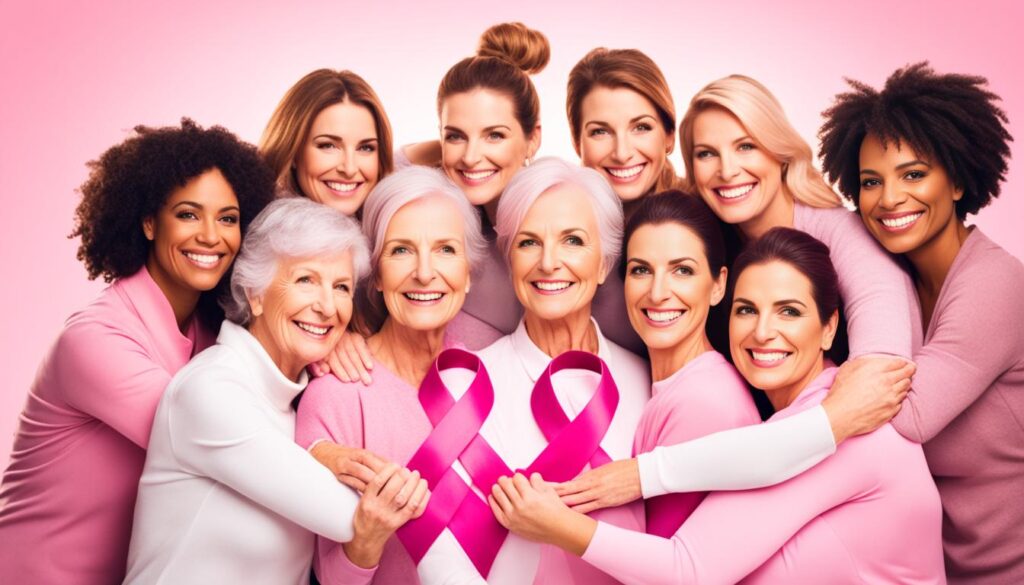
Early Detection and Screening
Early detection is key to beating breast cancer. Regular checks can spot problems early, before they get worse. Let’s look at the ways to find breast cancer early.
Breast Self-Examination
Checking your breasts every month is a great way to spot changes. You should look at your breasts and feel for any lumps or odd feelings. Getting to know your breasts helps you notice any problems early.
Clinical Breast Exam
Along with self-checks, seeing a doctor for a clinical breast exam is a good idea. Your doctor will check your breasts and lymph nodes for any issues. This can catch things you might not find on your own.
Mammography
Mammography uses X-rays to find breast cancer early. Women over 40 should get a mammogram every year. It can spot tumors or changes before you can feel them, leading to quick action.
| Screening Method | Recommended Frequency | Age Range |
|---|---|---|
| Breast Self-Examination | Monthly | All ages |
| Clinical Breast Exam | Annually | 20 and older |
| Mammography | Annually | 40 and older |
By sticking to these screening guidelines, you can help keep your breasts healthy. Regular checks are key to finding breast cancer early and treating it well.
Risk Factors and Prevention
Breast cancer is a complex disease influenced by both genetic and lifestyle factors. Knowing the risk factors is key to reducing the chance of getting it.
Genetic Factors
Some inherited genetic mutations, like those in the BRCA1 and BRCA2 genes, raise the risk of breast cancer. People with a family history or known genetic risk should talk to a genetic counselor. They can help assess risk and discuss early detection and prevention options.
Lifestyle Factors
Lifestyle also affects breast cancer risk. Staying at a healthy weight, being active, and drinking less alcohol can lower the risk. Being aware of hormonal changes from things like hormone therapy or birth control can help make better health choices.
Understanding and managing both genetic and lifestyle risks can help lower breast cancer risk. Regular breast cancer screenings, like mammograms, are key for catching the disease early.
| Genetic Risk Factors | Lifestyle Risk Factors |
|---|---|
|
|
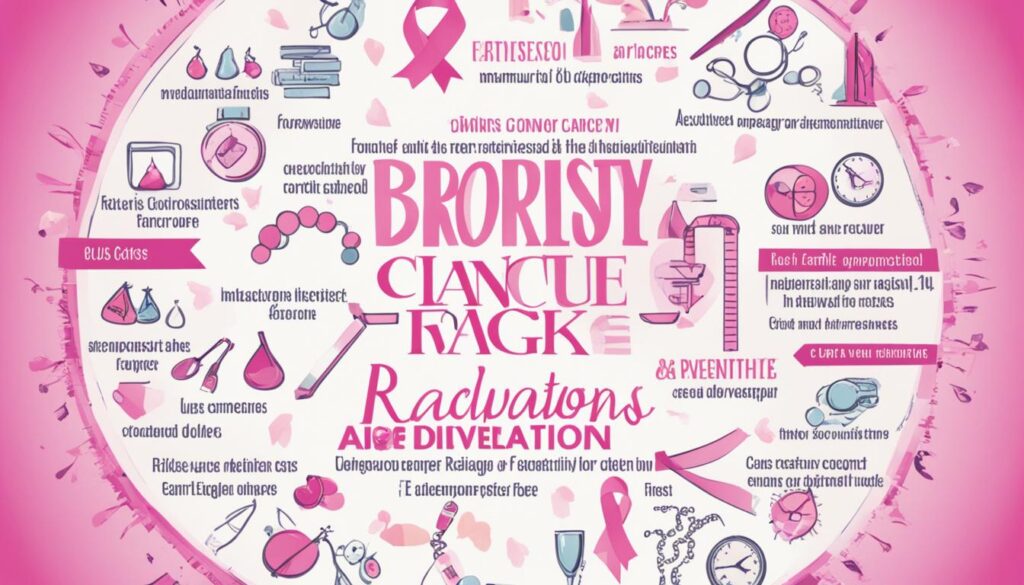
“Early detection and prevention are key to reducing the burden of breast cancer. By understanding the risk factors and taking proactive steps, individuals can empower themselves and their loved ones to lead healthier lives.”
breast cancer awareness, breast cancer prevention, mammogram, oncology
Breast cancer awareness and prevention are key topics today. Regular screening, like mammograms, helps find cancer early. This can make treatment more effective and improve chances of recovery.
Mammograms are X-rays of the breast that help spot breast cancer early. By getting mammograms regularly, women can catch cancer when it’s easier to treat. This is a big step in breast cancer prevention.
Oncology is the study of cancer treatment. Oncologists work with patients to create treatment plans. They use surgery, radiation, and chemotherapy to fight breast cancer effectively.
Living a healthy life and knowing your risk factors also helps prevent breast cancer. Being informed and proactive can lower your risk. This helps in the fight against this serious disease.
“Early detection is the best protection when it comes to breast cancer. Regular mammograms and self-exams are essential for catching any potential problems early on.”
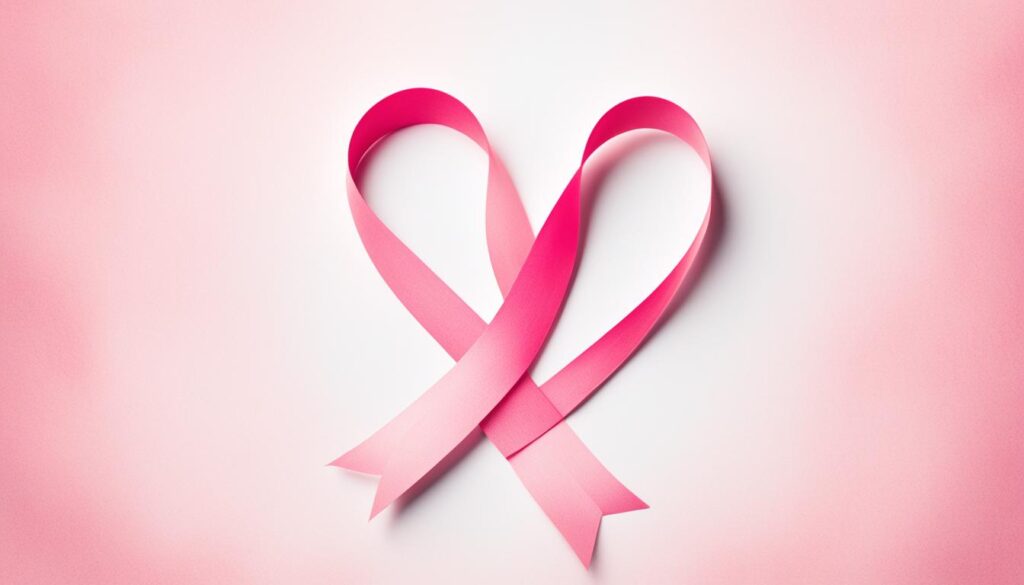
As we learn more about breast cancer, we find better ways to treat it. Breast cancer awareness and prevention are more important than ever. Regular cancer screening and healthy living can protect your health for the long term.
Treatment Options
Breast cancer patients have many treatment options to manage the disease and improve their outcomes. The choice of treatment depends on the cancer stage, type, and the patient’s health and preferences. Let’s look at the main ways to treat breast cancer.
Surgery
Surgery is a key part of breast cancer treatment. The type of surgery needed depends on the tumor’s size and location. Lumpectomy removes the tumor and some healthy tissue nearby. Mastectomy takes out the whole breast. Sometimes, lymph node dissection is done to check if cancer has spread.
Radiation Therapy
Radiation therapy is vital for breast cancer care. It’s often used with surgery to kill any cancer cells left behind. External beam radiation therapy uses high-energy beams from outside the body. Internal radiation therapy, or brachytherapy, puts radioactive seeds or sources right into the breast or near the tumor.
Chemotherapy
Chemotherapy uses anti-cancer drugs to kill cancer cells all over the body. It can be given before surgery to shrink the tumor or after to get rid of any cancer cells left. Sometimes, it’s used with other treatments like targeted therapy or hormone therapy to make treatment work better.
| Treatment Option | Description |
|---|---|
| Surgery | Removal of the tumor and surrounding tissue, including lymph node dissection in some cases. |
| Radiation Therapy | External beam radiation therapy or internal brachytherapy to target remaining cancer cells and reduce the risk of recurrence. |
| Chemotherapy | Systemic treatment using anti-cancer drugs to target and destroy rapidly dividing cancer cells throughout the body. |
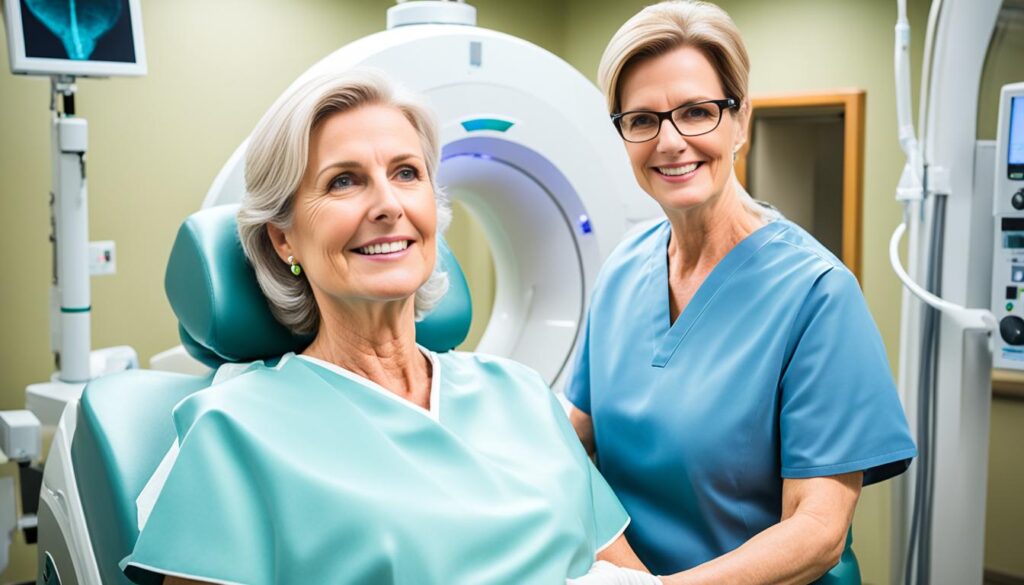
“The goal of breast cancer treatment is to achieve the best possible outcome for the patient, whether that’s a cure, long-term remission, or improved quality of life.”
Life After Breast Cancer
Breast cancer survivorship is a complex journey filled with challenges and opportunities. Survivors face physical, emotional, and social changes as they get their lives back. The path to recovery is not straight, but with support, survivors can thrive and improve their quality of life.
Survivorship
Life after breast cancer can feel overwhelming, but survivorship programs help a lot. These programs offer guidance and support for the long-term effects of treatment, like fatigue and pain. They also teach ways to keep your body and mind healthy, making it easier to get back to daily life.
Support Groups
Support groups are a key resource for breast cancer survivors. They provide a safe place to share stories, get emotional support, and learn from others. Connecting with others who understand helps survivors find comfort, new views, and ways to cope with life after treatment.

“The support I found in my local breast cancer support group was truly life-changing. Knowing I wasn’t alone in my struggles and being able to learn from others who had been through similar challenges made all the difference in my recovery.”
Surviving breast cancer is a journey that keeps going, but with the right support, people can take back their lives. By focusing on self-care, connecting with others, and using special programs, survivors can move forward to a fulfilling future.
Breast Cancer Research and Advocacy
Great strides have been made in breast cancer research, giving hope and progress in fighting this tough disease. Innovations in clinical trials and the hard work of advocacy groups are key. They push forward scientific discovery and spread awareness.
New research has opened up new ways to manage breast cancer. Clinical trials are crucial, testing new treatments and improving current ones. They bring together medical experts to find better and more tailored treatments.
- Breast cancer research is finding new targeted therapies and immunotherapies to make treatments more effective and less harsh.
- New ways to detect breast cancer early, like better imaging and liquid biopsies, help catch it sooner and treat it faster.
- Precision medicine is becoming more common. It lets doctors create treatments that fit the specific needs of each patient’s cancer.
Advocacy groups have been key in making sure breast cancer survivors and their families are heard. They work hard to make sure research focuses on what the community needs. They also lead fundraising efforts to support important studies and programs.
“The breast cancer community’s resilience and determination have been truly inspiring. Together, we are making strides towards a future where no one has to fear this disease.”
Thanks to the dedication of researchers, doctors, and advocates, breast cancer care is always getting better. By staying informed and involved, we can help shape a future where breast cancer is less of a threat.

My Personal Journey
Thinking about my breast cancer journey, I remember the ups and downs. From the first diagnosis to getting through treatment and recovering, it was tough. Yet, it showed how strong we can be.
When I found out I had breast cancer, it hit me hard. I felt scared and unsure, but I knew I had to keep going. With my family’s support, I started my treatment journey. It was hard, but I was determined.
During treatment, I learned a lot about coping. Things like meditation, yoga, and writing helped me stay calm. Meeting other survivors showed me I wasn’t fighting alone.
“Breast cancer may have been the catalyst, but it did not define me. It was a journey that transformed me, strengthening my resilience and deepening my appreciation for life.”
Looking back, I’m grateful for everything. Going through this made me more caring, strong, and focused. It also made me want to help others going through the same thing.
I share my story to give hope to others facing cancer. We can beat the challenges together, find strength in each other, and celebrate our victories.

Raising Awareness and Supporting the Cause
Breast cancer awareness is a shared responsibility. By joining awareness campaigns, community events, and fundraising, we can fight this disease together. Whether you’re a survivor, a supporter, or just caring, there are many ways to help.
Breast Cancer Awareness Campaigns
Joining breast cancer awareness campaigns is a powerful way to spread the word. These efforts happen all year, not just in October. By going to events, sharing online, and encouraging others, we can inspire action.
Community Involvement
Local communities are key in supporting breast cancer patients. Volunteer at hospitals, join support groups, or plan local fundraisers. These efforts build community and help those affected by cancer.
Fundraising Events
Events like walks and runs are crucial for breast cancer research and care. By taking part or organizing these events, you help fund vital work. This can lead to a cure and better lives for patients.
Volunteer Opportunities
Volunteers are vital to breast cancer organizations. Look for ways to help, like office work, outreach, or supporting patients. Every bit counts and can greatly impact lives.
By supporting breast cancer awareness, we can bring about change. Together, we can help create a future without breast cancer. Let’s work together to make a difference.
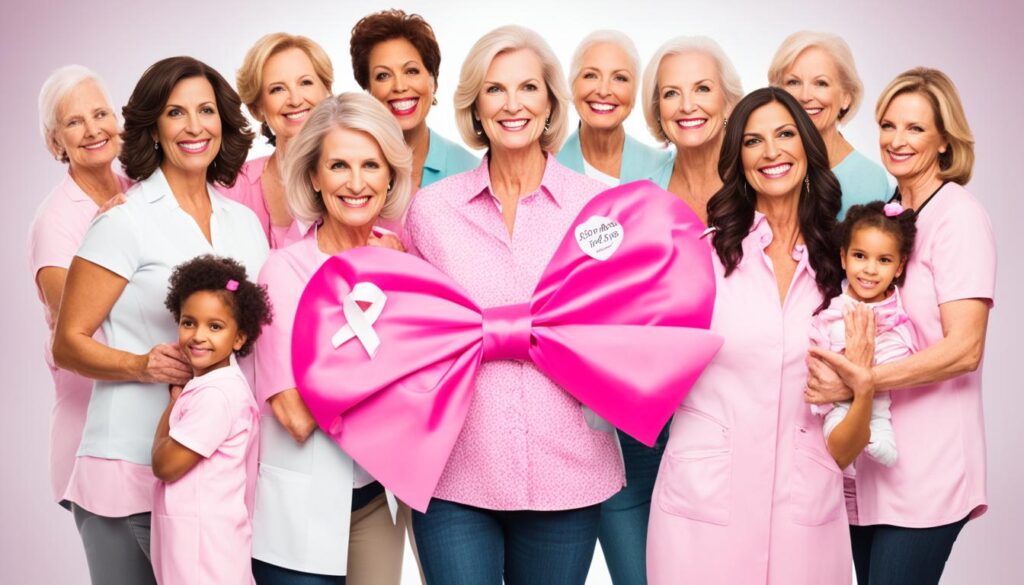
Resources and Support
Going through breast cancer can be tough, but you’re not alone. There are many resources and support services to help you. You can find educational materials, hotlines, and online communities. These tools offer the guidance, info, and emotional support you need.
Educational Resources
Being informed is crucial with breast cancer. Look into a variety of educational materials like brochures, articles, and online resources. They cover topics like breast cancer types, treatment options, and ways to prevent it. These resources help you understand your condition better and make informed care decisions.
Support Services
Breast cancer can be emotionally tough, but you don’t have to go through it alone. Contact support services like hotlines and online communities. Here, you can meet others who have gone through similar things. These services offer a safe place to share your feelings, ask questions, and get emotional support from those who get it.
| Resource | Description |
|---|---|
| American Cancer Society Hotline | A toll-free number that provides information and support to those affected by breast cancer. |
| Breast Cancer.org | A comprehensive online resource with educational materials, news updates, and a vibrant community forum. |
| Young Survival Coalition | An organization dedicated to supporting young women diagnosed with breast cancer, offering specialized resources and programs. |
You’re not alone in this journey. Use the many breast cancer resources, support services, and educational materials out there. They can help you navigate this tough time with the guidance and care you deserve.
“Breast cancer may leave you feeling overwhelmed, but the support and resources out there can make all the difference. Don’t hesitate to reach out and connect with others who understand what you’re going through.”
Conclusion
This guide has shown us how important breast cancer awareness and prevention are. We’ve learned about the different types of breast cancer and how to detect and treat them early. This knowledge helps us protect our health and support those fighting the disease.
It’s clear that checking ourselves, going for doctor visits, and getting mammograms on time are key. Making healthy choices and knowing our family’s health history can also lower our risk. We’ve seen how far breast cancer research has come and the strong will of the breast cancer community.
Let’s keep learning, talking to doctors, and joining the fight against breast cancer. By working together, we can make sure breast cancer awareness and prevention stay important. This way, we can hope for a future where breast cancer doesn’t affect our loved ones.

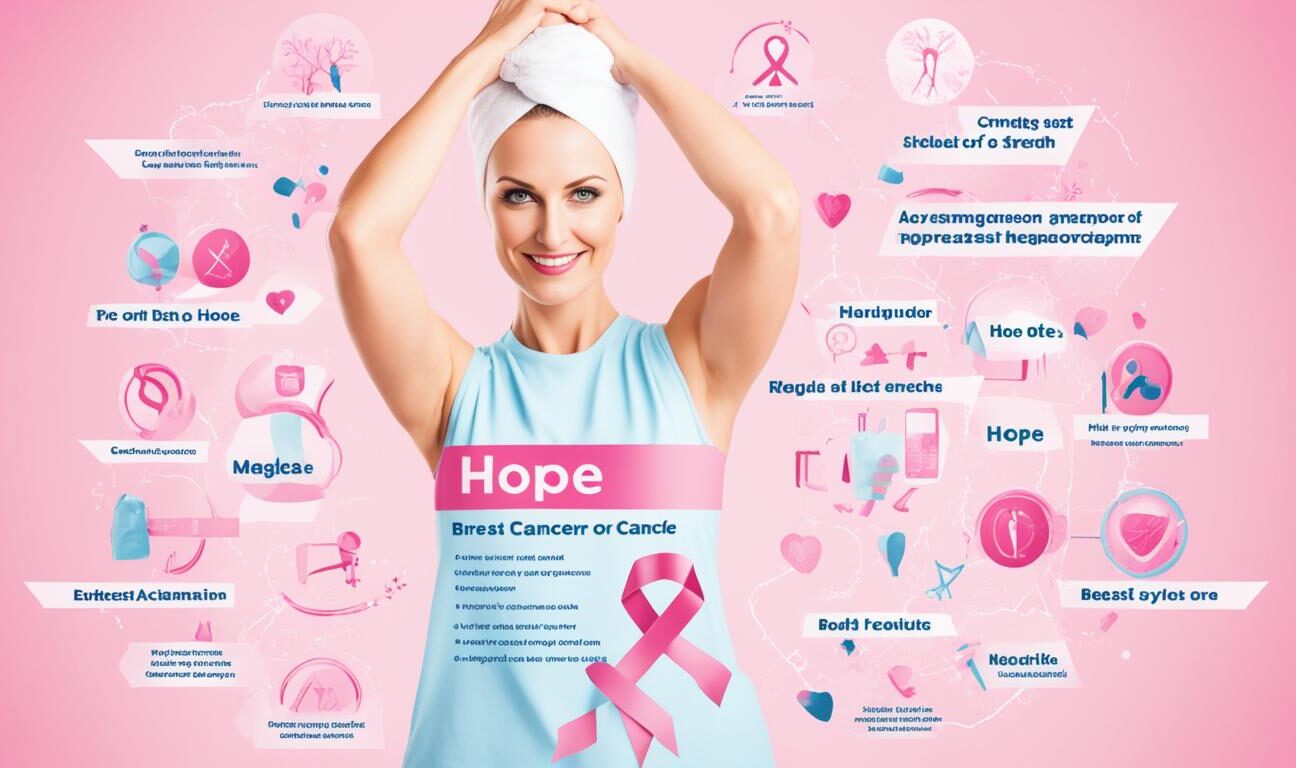
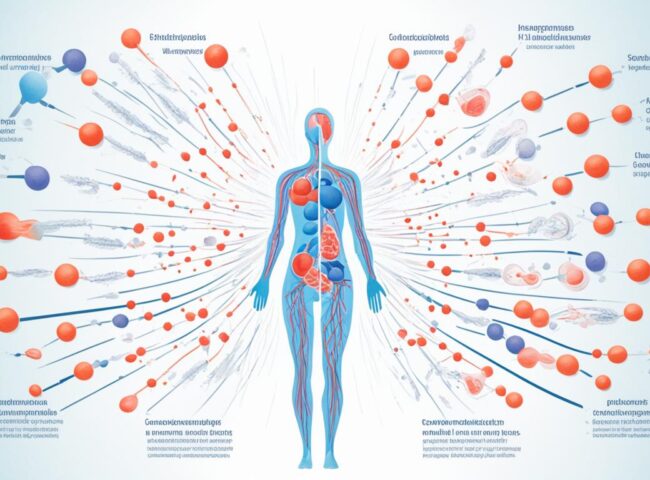

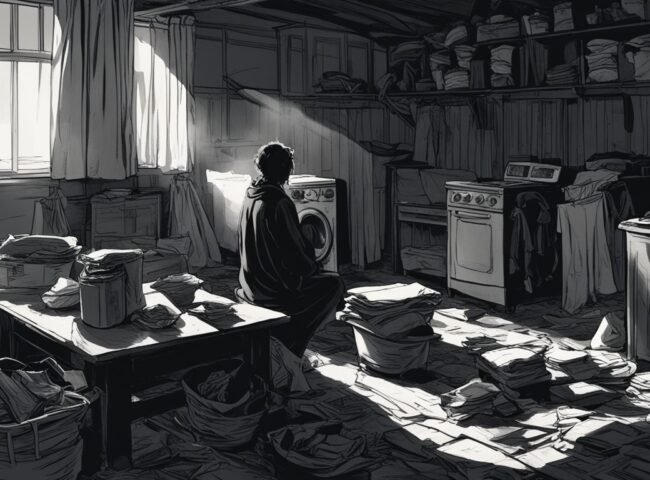
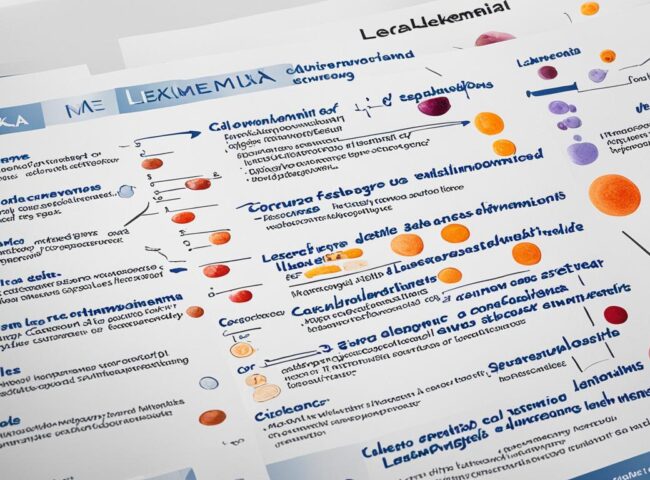

Leave feedback about this